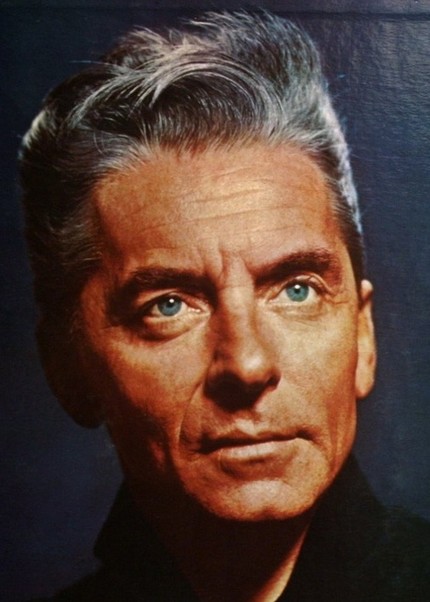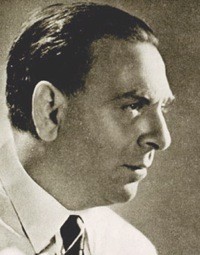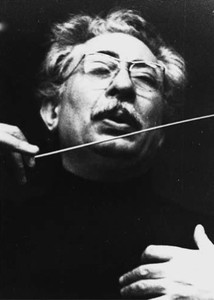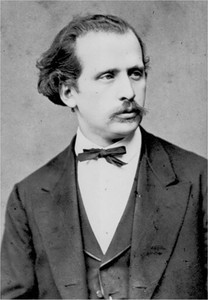
Herbert von Karajan (Herbert von Karajan) |
Herbert von Karajan

- Book «Karayan» →
One of the prominent music critics once called Karayan “Chief Conductor of Europe”. And this name is doubly true – so to speak, both in form and in content. Indeed: over the past decade and a half, Karajan has led most of the best European orchestras: he has been the principal conductor of the London, Vienna and Berlin Philharmonic, the Vienna Opera and La Scala in Milan, music festivals in Bayreuth, Salzburg and Lucerne, the Society of Friends of Music in Vienna … Karayan held many of these posts at the same time, barely managing to fly on his sports plane from one city to another in order to conduct a rehearsal, concert, performance, recording on records. But he managed to do all this and, in addition, still intensively toured around the world.
However, the definition of “chief conductor of Europe” has a deeper meaning. For several years now, Karajan has left many of his posts, concentrating on directing the Berlin Philharmonic and the Salzburg Spring Festival, which he himself has organized since 1967 and where he has staged Wagner’s operas and monumental classics. But even now there is no conductor on our continent, and probably throughout the world (with the possible exception of L. Bernstein), who could compete with him in popularity and authority (if we mean the conductors of his generation) .
Karajan is often compared with Toscanini, and there are many reasons for such parallels: the two conductors have in common the scale of their talent, the breadth of their musical outlook, and their gigantic popularity. But, perhaps, their main similarity can be considered an amazing, sometimes incomprehensible ability to completely capture the attention of musicians and the public, to transmit to them the invisible currents generated by music. (This is felt even in the recordings on records.)
For listeners, Karayan is a brilliant artist who gives them moments of high experiences. For them, Karajan is a conductor who controls the entire multifaceted element of musical art – from the works of Mozart and Haydn to the contemporary music of Stravinsky and Shostakovich. For them, Karayan is an artist who performs with equal brilliance both on the concert stage and in the opera house, where Karayan as a conductor is often complemented by Karayan as a stage director.
Karajan is extremely accurate in conveying the spirit and letter of any score. But any of his performances is marked by the deep seal of the artist’s individuality, which is so strong that it leads not only the orchestra, but also the soloists. With laconic gestures, devoid of any affectation, often emphatically stingy, “hard”, he subordinates each orchestra member to his indomitable will, captures the listener with his inner temperament, reveals to him the philosophical depths of monumental musical canvases. And at such moments, his small figure seems gigantic!
Dozens of operas were staged by Karajan in Vienna, Milan and other cities. To enumerate the conductor’s repertoire would mean to recall all the best that exists in musical literature.
Much can be said about Karajan’s interpretation of individual works. Dozens of symphonies, symphonic poems and orchestral pieces by composers of different eras and peoples were performed in his concerts, recorded by him on records. Let’s name just a few names. Beethoven, Brahms, Bruckner, Mozart, Wagner, Verdi, Bizet, R. Strauss, Puccini – these are the composers in the interpretation of whose music the artist’s talent is revealed to the fullest. Let us recall, for example, Karajan’s concerts in our country in the 60s or Verdi’s Requiem, the performance of which by Karajan in Moscow with the artists of the Da Scala theater in Milan made an indelible impression on all who heard him.
We tried to draw the image of Karayan – the way he is known all over the world. Of course, this is just a sketch, a line sketch: the conductor’s portrait fills with vivid colors when you listen to his concerts or recordings. It remains for us to recall the beginning of the artist’s creative path …
Karajan was born in Salzburg, the son of a doctor. His ability and love for music manifested itself so early that already at the age of five he publicly performed as a pianist. Then Karajan studied at the Salzburg Mozarteum, and the head of this music academy, B. Paumgartner, advised him to conduct. (To this day, Karajan remains an excellent pianist, occasionally performing piano and harpsichord pieces.) Since 1927, the young musician has been working as a conductor, first in the Austrian city of Ulm, then in Aachen, where he becomes one of the youngest principal conductors in Germany. At the end of the thirties, the artist moved to Berlin and soon took the post of chief conductor of the Berlin Opera.
After the war, Karajan’s fame very soon went beyond the borders of Germany – then they began to call him, “the chief conductor of Europe” …
L. Grigoriev, J. Platek, 1969





